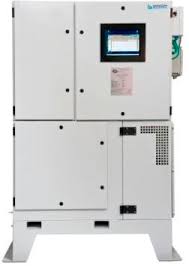Introduction
This training course will present a detailed overview of refining process yields, from the crude oil feed to the finished products. It is targeted at personnel directly involved in refining utilization and optimization, including but not limited to refining technologists and operations personnel as well as non-technical personnel interested in these processes or involved in refinery planning.
All the major refining processes are explored and examined with a view of understanding and appreciating how each unit relates to each other whilst at the same, time how these relationships can enhance refinery operations.
Major refining processes are presented and discussed, including feedstock, feedstock preparation, operating conditions, catalysts, product properties and refinery yields. Refining economics will be included as means to optimizing refining operations and profitability.
The course is oriented toward the practical aspects of refinery operations and yield optimization and includes the terminology used in the industry.
Objectives
- To familiarize and understand the various refinery types and appreciate how refining complexity impacts refining optimization and refining margins
- Comprehend the importance quality giveaways and learn how use blending calculations to reduce these
- Use hands on software that allow professionals in the industry to choose different types of crude diets and thus optimize refinery utilization and efficiency
- Act as a primer into the industry of Petroleum Refining to maximize process fluid yields
- Familiarize industry professionals with all processes associated with the processing of petroleum into finished products
- Equip new engineers into the industry, with the basic tools for understanding the complex nature of Refining and its operations
Training Methodology
Process Yields is a hands on, stimulating learning experience with access to professional software used by refining technologists and experts for optimizing refining operations. The course will be highly interactive, with opportunities to advance your opinions and ideas. Participation is encouraged in a supportive environment.
To ensure the concepts introduced during the course are understood, they will be reinforced through a mix of learning methods, including lecture style presentation, open discussion, case studies, software simulations and group work.
Attendees will have the opportunity to develop personal competencies and build up expert knowledge of crude oil yield processes in a range of equipment.
Who Should Attend?
This course is intended for refining professionals working in the industry either as refining technologists or in refining operations and engineers. It is designed to allow a further understanding of the various processes available and how these can be optimized to improve yields and refining margins.
- Refining engineers
- Operations personnel including shift supervisors
- Marketers and refinery planners
- Blending professionals
- Other engineers who would like a further understanding of the complex refining processes
- Accountants, marketers and other professions who would like to comprehend the advantages and limitations of the various refining processes at their site
SEMINAR OUTLINE
DAY 1
Crude Oil Yields Refinery Technology
- Introduction to Crude Oil Origins & Characteristics
- Crude oil Assay and properties
- Crude oil products & Product specifications
- LPG
- Gasoline
- Kerosene/ Jet Fuel
- AGO / Diesel Fuel Oil
- Petrochemical Feedstocks
- Overall refinery flow: Interrelationship of processes
DAY 2
Petroleum Refinery Processes
- Crude Processing
- Desalting
- Atmospheric distillation
- Vacuum distillation
- Heavy Oils Processing / Bottom of the barrel upgrading
- Cocking and Thermal Processes
- Delayed Coking
- Fluid Coking
- Flexicoking
- Visbreaking
- Case study – example
DAY 3
Process for Motor Fuel Production
- Fluid catalytic cracking
- Hydrocracking
- Cat Cracking
- Isomerization
- Alkylation
- Hydrotreating
- Catalytic Reforming
- Case study – example
DAY 4
Supporting Operations
- Blending for Product Specifications
- Hydrogen production
- Refinery Gas Plants
- Acid Gas Treating
- Sulfur Recovery Plants
- Utilities
- Case study – example
DAY 5
Refinery Economics
- Residue Reduction
- Asphalt and Residual Fuel
- Refinery Complexity and Netback
- Economic Evaluation
- Cost Estimation
- Case Studies
- Group Discussions
- Program Evaluation & Summary

